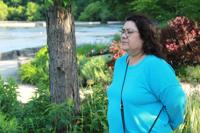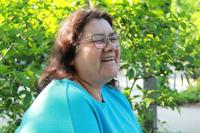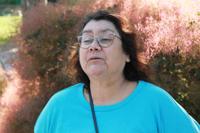Guelph poet and ’60s Scoop survivor shares her personal journey through writing
How Cynthia (Wasizo kwe) Missabie became her own hero
Her family had left Guelph, was moving around the United States, and even went to Puerto Rico.
“At first, it was an adventure, like, oh, I’m going to a new place, I’m going to meet new people,” Missabie said. “But then I got attached to those people.”
She would even change her name when she moved, from Catherine to Cathy, or Kate to Katie. Some people still call her by different names.
“I look back on that time and I think, wherever we lived, I tried to make some kind of friend, so I could escape,” Missabie said.
Finally, she admitted to her mother that she was abused by her father, and it split up the family temporarily.
“My mother moved everybody up to Canada for a year,” Missabie said. “At the end of the year, my parents got back together.”
She said her mother had been drinking for years, and “was a mess” without her father.
The children were all struggling, and Missabie said some of them still do.
“Not every story has a happy ending, and so many people lose themselves,” said Missabie.
For her, she said she loves the peaceful life she has created. She returned to Guelph in 1981 and has been here ever since.
Both her mother and father are now dead, but Missabie had tried to maintain relationships with her family, as well as learn about her birth relatives.
She has been in recovery for 34 years and runs a weekly meeting which incorporates both Alcoholics Anonymous and Indigenous teachings.
“Everything is a teaching, no matter how you go about your life. If this hadn’t happened to me, I wouldn’t be who I am,” she said. “And then there’s the idea of what I am leaving behind for other people.”
Missabie sings with the barbershop group, the Over Tones, and dotes on her dog, though she never had children of her own.
“I started writing because I was so depressed and lonely, I just had to do something,” she said.
One night she read a poem at an event and a man said to her, “You’re kind of angry, aren’t you?” And she thought, “well, if you had lived my life, you’d be a bit angry too.”
Truthfully, she said now she approaches things with a healthy sense of humour.
She is in a different place now emotionally then she was when she contributed poetry to “River Bundles, an Anthology of Original Peoples in the Waterloo-Wellington Area,” edited by Plume Writers Circle.
She was one of the original circle members in Guelph along with friends Hope Engel and Wendy Stewart. She also read her poetry with them at the Eden Mills Writers’ Festival.
She plans to contribute to an upcoming compilation, called “Blood Memory, an Indigenous Poets Society Anthology.”
“One thing I got through my writing, and what I gained over that time, is that I basically rescued myself. So, I had become my own hero in a way,” she said.
She shared that her spirit name is Wasizo kwe, or Woman who Glitters.
“I always thought I was kind of different, and it wasn’t always great, but now it’s wonderful,” Missabie said.









No comments:
Post a Comment
Please leave a comment.